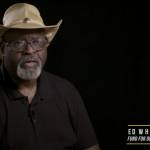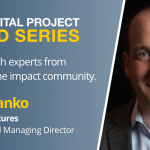Franchise models represent the fastest growing industry for emerging markets. Wednesday’s session, “More than McDonalds,” explored how innovative, social franchise models are currently disrupting healthcare and extending access for vital health services to the people living at the Base of the Pyramid (BoP).
Over the past decade, bold pioneers such as Living Goods, World Health Partners, and others have taken the age-old model made famous by companies like Avon and McDonalds and have tweaked it to serve the historically under-served. While at a glance, a fee-for-service model of healthcare targeting the world’s poor may seem a little odd, a closer examination from today’s expert panel revealed that it’s actually one of the safest and most scalable solutions available for impact investors and those who are under-served. This is in large part due to its powerful ability to allocate risk and reward: proven models = significantly higher success rates = higher profits or SROI.
Food for thought from this session:
- The model’s appeal—franchisors like it because it grows with the help of other people’s capital; and franchisees and investors like it because they’re buying into a proven blueprint that’s replicable and scalable.
- The model’s limitations—there’s a temptation to grow the franchise and increase cross-subsidies in order to scale impact by creating new products and services at different price points. While well intentioned, chasing such rapid diversification and scale can, as Nick Pearson of Jacaranda Health cautioned, come at the cost of the brand and quality of service. E.g., Jacaranda has thought about broadening their medical offerings but hasn’t so it can focus on its core competencies: Maternity clinics
- Ways to protect a franchise’s brand and ensure quality—Unlike a commercial franchise where a provider can be shut down if its performance is not up to snuff, social franchises, where often the provider is located in a remote community and is the only healthcare option, “franchisors need work with providers to move them along the quality spectrum,” said Karen Pak Oppenheimer of World Health Partners. Franchise’s can also preform annual quality audits.
Products with higher margins require more training and education. “Franchises can’t be beholden to the god of sustainability”—there is some degree of subsidies required in emerging markets but how do you decrease the need for them overtime? “Is it more powerful to maximize equity or number of people being served?”
Special SOCAP13 Volunteer post from Nick Hiebert



